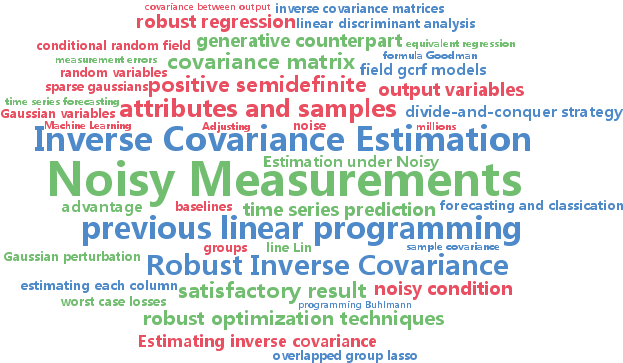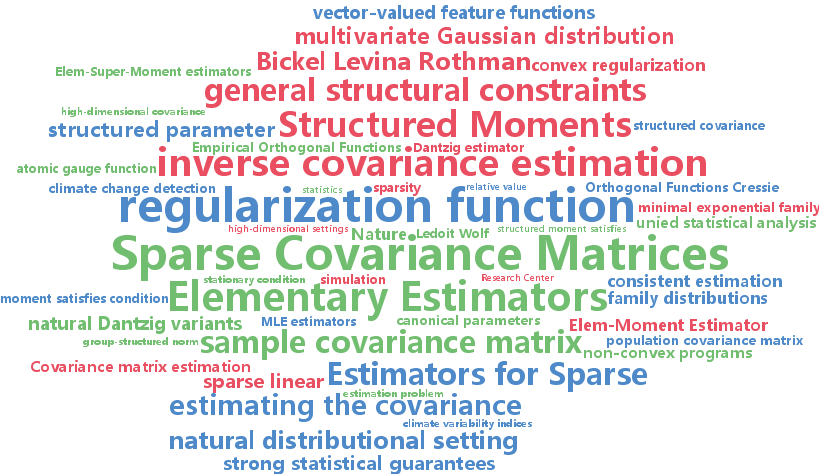inverse covariance estimation
-
Jun-Kun Wang and Shou-de Lin
Robust Inverse Covariance Estimation under Noisy Measurements (pdf)
This paper proposes a robust method to estimate the inverse covariance under noisy measurements. The method is based on the estimation of each column in the inverse covariance matrix independently via robust regression, which enables parallelization. Different from previous linear programming based methods that cannot guarantee a positive semi-definite covariance matrix, our method adjusts the learned matrix to satisfy this condition, which further facilitates the tasks of forecasting future values. Experiments on time series prediction and classification under noisy condition demonstrate the effectiveness of the approach.
-
Eunho Yang and Aurelie Lozano and Pradeep Ravikumar
Elementary Estimators for Sparse Covariance Matrices and other Structured Moments (pdf)
We consider the problem of estimating distributional parameters that are expected values of given feature functions. We are interested in recovery under high-dimensional regimes, where the number of variables $p$ is potentially larger than the number of samples $n$, and where we need to impose structural constraints upon the parameters. In a natural distributional setting for this problem, the feature functions comprise the sufficient statistics of an exponential family, so that the problem would entail estimating structured moments of exponential family distributions. A special case of the above involves estimating the covariance matrix of a random vector, and where the natural distributional setting would correspond to the multivariate Gaussian distribution. Unlike the inverse covariance estimation case, we show that the regularized MLEs for covariance estimation, as well as natural Dantzig variants, are \emph{non-convex

